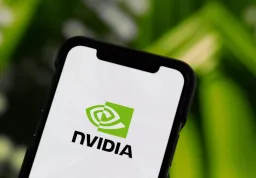How to increase your chances of IPO allotment?

An Initial Public Offering (IPO) is often seen as the holy grail of investments for both experienced and amateur investors. With rising demand for IPOs due to their potential for high returns, many investors are eager to get their hands on them. But with IPO allotment a highly competitive process, how can an investor increase their chances at getting a piece of the pie? This article will discuss the essential tips you need to know about IPO allotment and how to increase your chances of success in this highly sought-after investment opportunity. Read on to make sure you’re prepared when applications open up!
What is IPO?
An initial public offering, or IPO, is the first time a company sells shares of capital stock to the general public. A company may not offer or sell shares under federal securities laws unless the transaction is registered with the SEC or an exemption applies.
General reasons behind non allotment of IPO
As explained below, there are four possible reasons why investors do not receive an IPO allotment.
- IPO oversubscription and computerised lottery
- Computerised lottery
- Invalid application
- Bid price is lower than the isssue price
IPO oversubscription and computerised lottery
When a company launches its IPO, it discloses the price differential as well as the number of shares it intends to issue through this offering. For example, if a company wants to raise Rs.10 crore, it may issue 10 lakh shares at a price range of Rs100-101 through an IPO. In an ideal world, the company receives applications for all ten lakh shares and distributes them to investors. However, in reality, the situation is not the same.
For example, if the company receives one crore applications, it can be stated that the company’s initial public offering (IPO) was subscribed to ten times the original issue size of ten lakh shares.
The company will no longer be able to allocate shares to every applicant.
Computerised Lottery
If the company receives more applications than it can accommodate, it will hold a computerized lottery in which each applicant has the same chance of receiving an allotment. In the preceding example, because the company has gained 10 times the value of the offered shares, not all investors will be assigned shares.
It is one of the most common reasons why investors do not receive an IPO allotment, particularly in high-demand IPOs.
Invalid Application
The Registrar of the IPO checks each IPO application for completeness and accuracy of information. There are numerous reasons for rejecting the allotment that investors are not aware of. Some common reasons include:
- The company is receiving multiple IPO applications that use the same PAN number. You can only submit one application per person in an IPO (per PAN no.). As a result, if the company receives multiple applications under the same PAN, they are all rejected.
- Incorrect or invalid information on the IPO application form.
- Mismatch between the name on the PAN card and the name on the bank account, for example.
If the Registrar of the IPO deems an application to be invalid, it is rejected, and the investor receives no allotment.
Bid price is lower than the issue price
When submitting an application for a book building IPO, you must select the price at which you want to apply from within the given price limit. In the example below, you can apply at any price between Rs.100 and Rs.101. After collecting all applications, the company determines the final issue price based on the bid price offered by investors. If the Issue Price is higher than your bid price, an investor will not receive an allotment. In the preceding example, if you submit the application with a bid Price of Rs.100.5 and the company declares the issue Price to be Rs.100.8, your application will be rejected.
 How to increase your chances of IPO allotment
How to increase your chances of IPO allotmentIdeas to increase the chances of IPO allotment
Using the following ideas may help increase in the chances of IPO allotment:
- Avoid using large applications
- Apply for the same IPO using multiple accounts
- Bid at cut off price
- Avoid last minute subscriptions
- Fill out your information completely
- Buy holding or parent company shares
Avoid using large applications.
All retail applications (less than Rs200000) are treated equally by SEBI’s allotment process. In the event of over-subscription, there is no point in submitting a large application. Minimum bids with different accounts may be used for oversubscribed IPOs. This will also assist in investing spare funds in various IPOs.
Apply for the same IPO through multiple accounts.
Do not apply for the IPO with the maximum bid in a single account; instead, apply through multiple accounts. For highly subscribed IPOs, one should apply through multiple IPO accounts. Applying through multiple accounts can definitely increase your chances of getting an IPO allotment.
Bid at cut off price/higher price band
Investors frequently confuse the bid price and the cut-off price. The investor wants to pay whatever price the company decides after the book-building process is completed. After submitting an application at Cut off, the investor must bid at the highest price band. If the price is lower, the difference is refunded.
C.E. Info Systems’ (Map my India’s) Rs.1039.61 crore IPO consists entirely of an offer for sale (OFS) of Rs.1039.61 crore. According to the combined bid details released by the BSE at the end of Day-3, the Map my India IPO was subscribed 154.71X in total, with massive demand coming from the HNI segment, followed by the QIB segment, and a significant contribution from retail.
Avoid last-minute subscriptions.
If you have already decided that you are going to apply for the IPO, then do so on the first or second day. If an investor applies on the last day of trading, it may result in issues such as the bank account not responding due to HNI and QIB high subscription or any other technical issue. Its purpose is to ensure that the investor does not miss out on the opportunity to invest in the IPO.
Fill out your information completely.
Filling out the IPO forms should not be rushed. The investor had to correctly fill in the details such as the amount, name, DP id, bank details, and so on. Printed forms are also available in the market and should be used. ASBA is the most secure way to apply for the IPO. One can apply for ASBA through their bank, but the investor must check the details first. It will almost certainly avoid technical rejection.
Buy holding or parent company shares
The above trick is applicable to all IPOs, but not all IPOs. Although this trick is brilliant in any context. If the investor has at least one share of the parent company in his demat account, he is eligible to apply through the Shareholder Category.
However, it is only applicable when the IPO Company’s parent company is already listed on the stock exchange. There is a reservation for shareholders in that parent company. As a result, it is almost certain that the chances of allotment are extremely high in the shareholder category. Furthermore, bids can be submitted in both the retail and shareholder categories. As a result, the increased chances of allotment.
Follow us on Instagram.









